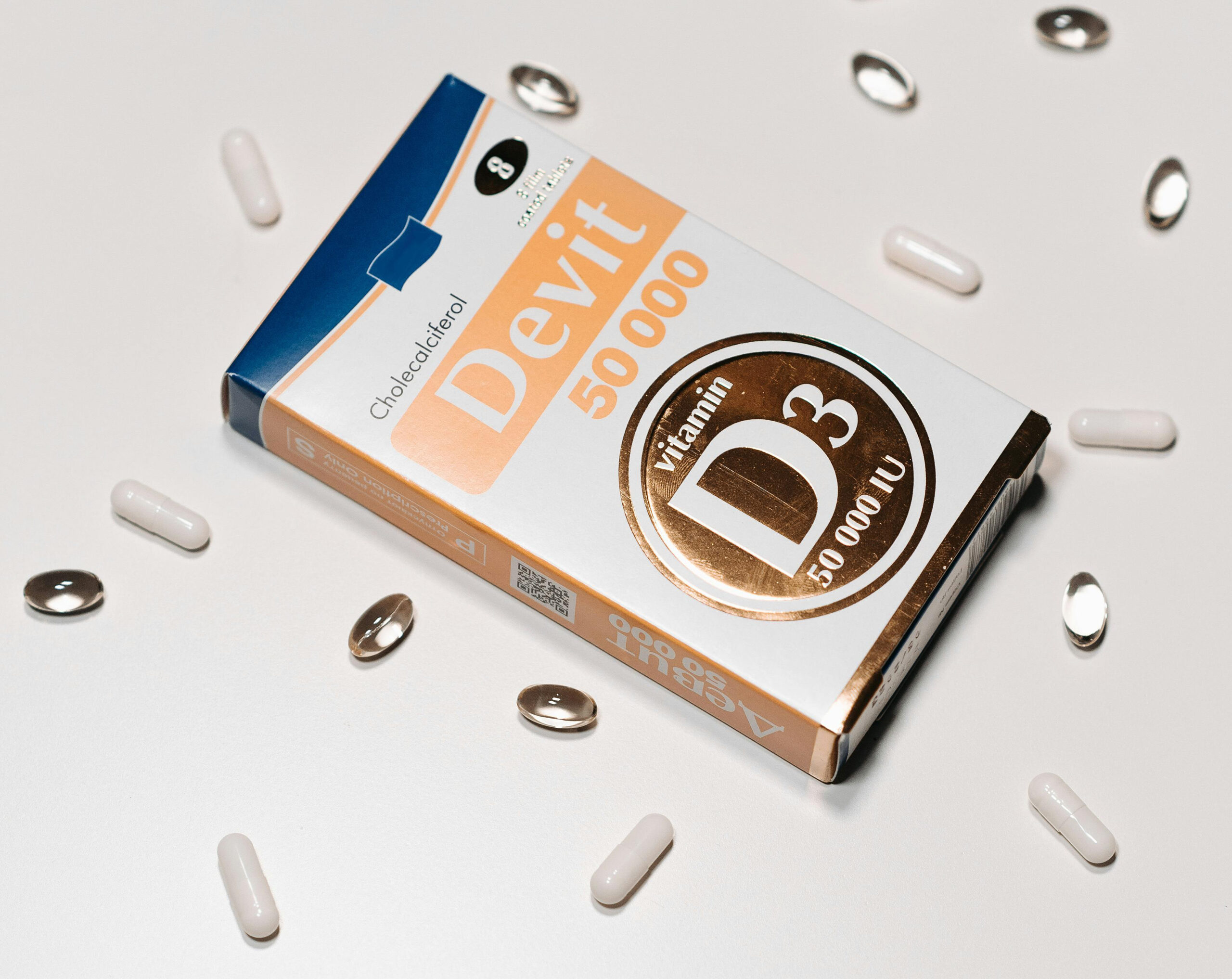Vitamin D, often referred to as the “sunshine vitamin,” has garnered significant attention in recent years due to its wide-ranging health benefits. Beyond its well-known role in maintaining bone health, vitamin D supplementation has been linked to numerous other health benefits. In this blog, we’ll explore the science behind the health benefits of vitamin D supplementation, supported by recent research.
Bone Health and Fracture Prevention
Vitamin D is essential for calcium absorption in the gut, which is crucial for maintaining healthy bones. Research has consistently shown that vitamin D supplementation, particularly when combined with calcium, can reduce the risk of fractures in older adults. A meta-analysis highlighted that high-dose vitamin D supplementation can lower the risk of total fractures, especially in institutionalized elderly populations (Chung et al., 2011). This evidence underscores the importance of adequate vitamin D intake for skeletal health.
Immune System Modulation
Vitamin D is known for its role as an immunomodulatory agent, meaning it helps regulate the immune system. Studies have shown that vitamin D deficiency is linked to an increased risk of autoimmune diseases, respiratory infections, and other immune-related disorders. Supplementation can enhance immune function and may reduce the severity of illnesses such as multiple sclerosis, type 1 diabetes, and even respiratory infections like COVID-19 (Charoenngam & Holick, 2020).
Cardiovascular Health
There is a growing body of evidence suggesting that vitamin D plays a role in cardiovascular health. Observational studies have linked low vitamin D levels with a higher risk of cardiovascular diseases such as hypertension, heart disease, and stroke. However, while these associations are strong, randomized controlled trials have yielded mixed results regarding the efficacy of vitamin D supplementation in reducing cardiovascular risk (Vanga et al., 2010). Despite the inconclusive results, maintaining sufficient vitamin D levels is still considered beneficial for overall cardiovascular health.
Mental Health and Cognitive Function
Emerging research suggests that vitamin D may also play a role in mental health and cognitive function. Low levels of vitamin D have been associated with an increased risk of depression, particularly in older adults. Some studies indicate that vitamin D supplementation may help alleviate symptoms of depression and improve cognitive function, although more robust clinical trials are needed to confirm these effects (Haines & Park, 2012).
Cancer Prevention
Vitamin D’s role in cancer prevention has been a topic of considerable research. Some studies suggest that higher levels of vitamin D can reduce the risk of certain cancers, particularly colorectal cancer. A dose-response meta-analysis found that each 10-nmol/L increase in blood 25-hydroxyvitamin D concentration was associated with a 6% reduced risk for colorectal cancer (Chung et al., 2011). However, the evidence is not yet robust enough to make definitive conclusions, and further research is needed.
Gut Health and Microbiota
Recent studies have also explored the impact of vitamin D on gut health. Vitamin D supplementation has been shown to improve gut microbial diversity, particularly increasing the abundance of beneficial bacteria such as Akkermansia and Bifidobacterium. This suggests that vitamin D may play a role in maintaining a healthy gut microbiome, which is crucial for overall health (Singh et al., 2020).
Ideal Daily Dose
The ideal daily dose of vitamin D varies depending on several factors, including age, health status, geographic location, and individual vitamin D levels. However, general recommendations can be made based on current research and guidelines:
General Population
- For most adults, a daily intake of 600-800 IU of vitamin D is recommended to maintain adequate serum levels of 25-hydroxyvitamin D (the marker used to assess vitamin D status).
- For older adults (over 70 years old), the recommendation increases to 800-1000 IU daily to help reduce the risk of bone fractures and falls, and to maintain overall health.
Individuals with Vitamin D Deficiency
- For those diagnosed with vitamin D deficiency, higher doses are often required to restore adequate levels. This can range from 1,000 to 2,000 IU daily, depending on the severity of the deficiency and under the guidance of a healthcare provider.
- Some treatment protocols for severe deficiency may involve even higher doses for a short period, such as 50,000 IU weekly for 6-8 weeks, followed by a maintenance dose.
Specific Groups
- Pregnant and breastfeeding women: The recommended dose is typically 600-800 IU daily, but some may require more based on individual needs.
- People with limited sun exposure: Individuals who do not get regular sun exposure may need higher doses, up to 1,000-2,000 IU daily, to maintain sufficient levels.
- Individuals with obesity: Since vitamin D is fat-soluble and can be sequestered in fat tissue, individuals with obesity may need higher doses, sometimes up to 2,000 IU daily or more, to achieve optimal blood levels.
Upper Limit
- The tolerable upper intake level (UL) for vitamin D is set at 4,000 IU per day for adults. Intakes above this level are generally not recommended unless under medical supervision, as excessive vitamin D can lead to toxicity, characterized by hypercalcemia (high levels of calcium in the blood).
Conclusion
Vitamin D supplementation offers a wide range of health benefits, from supporting bone health to modulating the immune system and potentially reducing the risk of certain chronic diseases. While more research is needed in some areas, the existing evidence strongly supports the importance of maintaining adequate vitamin D levels for overall health and well-being. As always, it is advisable to consult with a healthcare provider before starting any supplementation regimen.

Leave a Reply